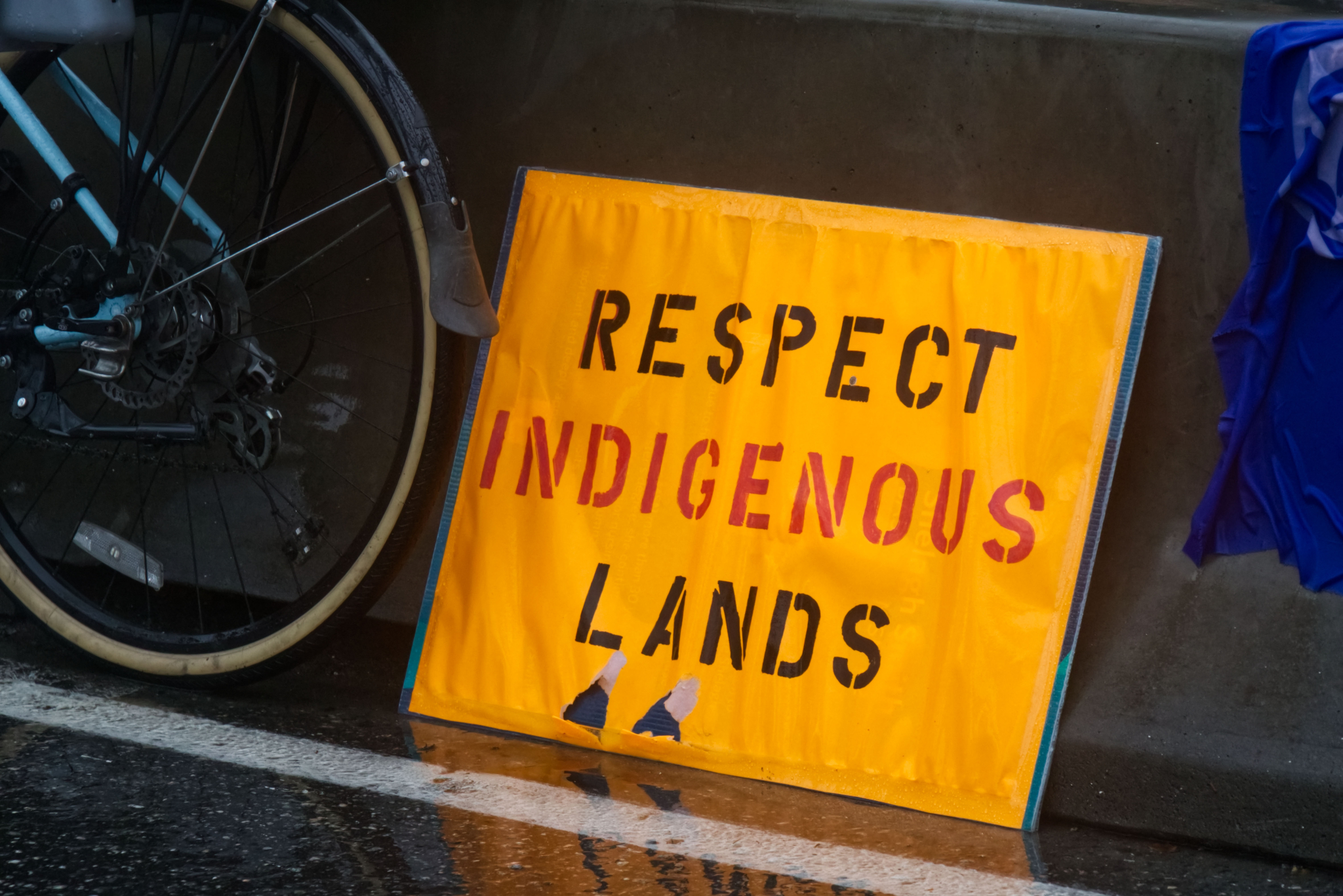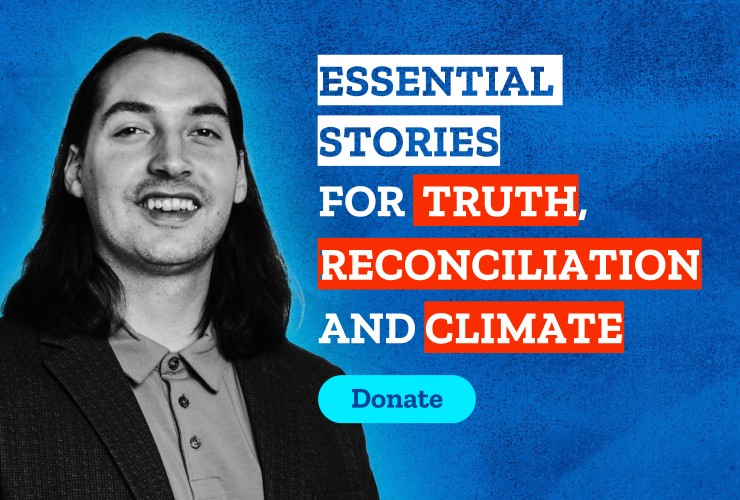While walking through the park near my home, I saw a group of children sitting in a tight circle around their teacher next to an old tree. The ancient poplar towered over them, providing protection and a heartwarming presence. Seeing these children peacefully abiding in the embrace of nature gave me hope for a future with a more eco-centric worldview.
The National Day for Truth and Reconciliation provides an opportunity to contemplate how Indigenous ways of knowing can help make that future a reality.
David Suzuki discussed the importance of the Indigenous worldview on CBC’s The Sunday Magazine: “I spent 40 years working and learning from the one group that has … that still understands how important Mother Earth is, and that’s Indigenous people around the world. They live within what we call an eco-centric perspective that says, we’re a part of a web of relationships with all other species of animals and plants that are our relatives … with air, water and soil and sunlight. That understanding has got to be the basis of everything we do.”
An article in The Lancet by Nicole Redvers, et al., describes the determinants of planetary health from an Indigenous perspective. Redver’s findings are based on Indigenous-led research methodologies and deep listening with a diverse group of Indigenous Peoples from around the world.
Indigenous-rooted law and governance practices give the right of being to nature and a voice to rivers, forests and other ecosystems. In the same way that corporations have legal rights, a wetland or mangrove should have a right to a healthy existence. “Current political and economic narratives continue to deprive the land, water and air of being in the world as equal rights-holders.”
This narrative is beginning to change with the rights of nature movement, where rivers such as the Mutuhekau Shipu in Quebec have been granted rights like “the right to flow, maintain biodiversity, be free from pollution and to sue.”
Women are respected by Indigenous cultures as caretakers of the natural environment through leadership in cultural, spiritual and regenerative practices. “Women foster community, strengthen resilience, and enhance collective vitality and well-being.” The climate movement has seen the rise of powerful feminine leadership from international heroes like Greta Thunberg and Vanessa Nakate, but Indigenous women like Melina Laboucan-Massimo and Autumn Peltier in Canada are also attracting attention as role models.
A sense of entitlement drives our extractive relationship with the natural world. “Humans have lost their identity as organisms within a larger system and thus have lost awareness of how to live sustainably with Mother Earth.” A critical mass of concerned citizens must work for societal change grounded in the Indigenous understanding of our relationships and responsibilities with nature and each other.
Indigenous nations are less individualistic and believe collective societies are more conducive to maintaining wellness and balance. Colonial societies are drowning in individualism, consumerism and political conflict. “Collective societies are more likely to consider the present and future impact their thoughts and actions have on others and place rather than focus on immediate self-gratification or reward.”
Wealthy societies tend to reject or ignore our collective responsibility to future generations, but the rising strength of climate activism is an indication that we are approaching a tipping point where the majority will no longer accept environmental destruction and climate pollution in the service of short-term economic gain.
Western science has identified the human causes of climate change, including planetary boundaries that we are crossing at our own peril. However, the western approach also has an interest in controlling or modifying factors for our own benefit and can overlook or dismiss Indigenous scientific methodology, which is “not limited by time and uses the collective observation of its people to explain natural phenomenon through real and metaphoric narratives.”
In terms of governance, western societies are increasingly divided with laws and policies whip-sawing in support of the currently governing ideology. Indigenous natural law represents “a comprehensive ethical framework that defines the codes of conduct necessary for maintaining a peaceful, thriving and co-operative society grounded in love and reciprocity.” The hostile political discourse in Canada and the United States confirms the colonial system is badly in need of a new approach.
My own awakening to a nature-oriented worldview came during a recent community forest-planting event. I watched with fascination as an Indigenous elder blessed the tree seedlings and sprinkled tobacco on them in a beautiful act of reverence and care. The elder praised the volunteers for honouring Mother Earth with a tiny forest to be enjoyed by future generations and all creatures of the Earth. The elder also instructed us to be mindful of the connection we were making to the land as we dug our hands in the soil and placed the beginnings of a new forest in the ground.
To the wonder of the onlooking crowd of tree-planters, two Swainson’s hawks hovered low above the proceedings and honoured us with their distinctive cry. Listening to the words of Indigenous elders has convinced me that there is wisdom and sacredness to their teachings.
Reconciliation is as important to resolving the climate crisis as any technical or socio-economic solution. A joyous and thriving future is possible, but it will require all of us to learn from Indigenous Peoples with an open mind and an open heart.
Rob Miller is a retired systems engineer, formerly with General Dynamics Canada, who now volunteers with the Calgary Climate Hub and writes on behalf of Eco-Elders for Climate Action.






Comments